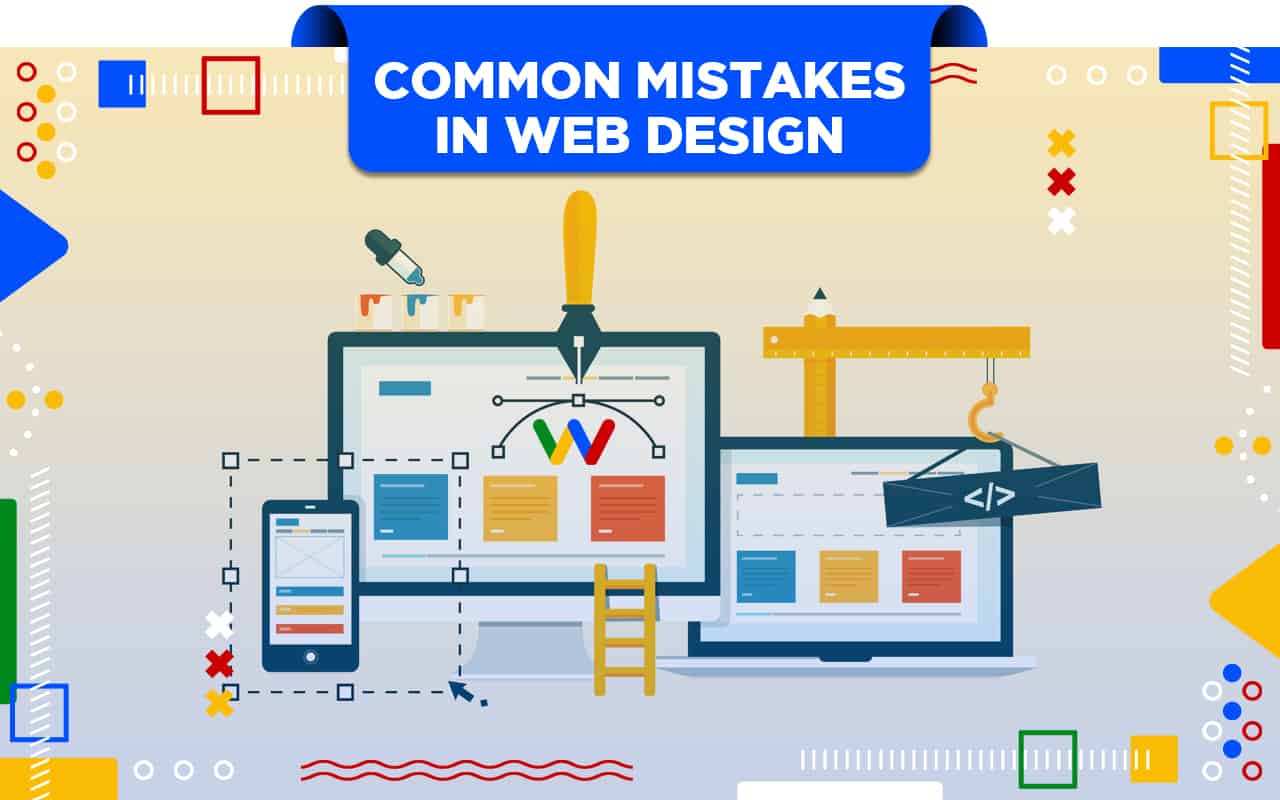A well-executed web design can have a giant impact on user experience. Poorly designed websites can be confusing and difficult to use, which will lead to low user engagement. A well deigned and developed websites makes a website easy to navigate, and helps users find the information they need quickly and easily. It also makes the website visually appealing, which can encourage users to stay longer and explore more.
User engagement is essential for any new website, but it’s especially important for businesses. A website that’s easy to use and engaging will keep customers coming back, and it will help to build brand loyalty. Good web design can also help to increase sales, as users are more likely to purchase from a site that they find enjoyable to use.
Introduction
In any web design project, it’s important to consider how users will interact with the interface. By adding user engagement as an essential factor, web designers can create interfaces that are both visually appealing and easy to use. By keeping the user in mind, we can create interfaces that are not only beautiful, but functional for your target audiences.
User engagement should be considered at every stage of the web design process, from wireframing to coding. By making user engagement a priority, we can create websites that are not only visually stunning, but also easy to use and navigate. In short, we can create better experiences for your users.
Are you skilled in what works for your audiences when it comes to user experience? Do you know what they want and need? Creating a great user experience is essential to keeping your audiences engaged. If not, Sydney Website Design Agency is here to help.
Table of Contents
- What is an SEO Specialist?
- Finding the Right SEO Specialist for Your Type of Business
- Knowing the Difference Between a Specialist and an Agency
- Asking the Right Questions Before Hiring an SEO Specialist
- 7 Steps in Hiring an SEO Specialist
- Signs That it’s Time to Hire an SEO Specialist
- Working with an SEO Specialist for Digital Marketing Success
What is Web Design and User Engagement?

Web design is the process of creating a website. This includes the layout, colours, fonts, and content. A web design agency works on delivering website design that generates high user engagement.
User engagement is how users interact with a website. This can include things like how easy it is to use, how visually appealing it is, and how often users come back. User engagement may also include how long people are spending time on the website, if they are downloading files, or if they are commenting and sharing articles from the website.
User engagement is a term that refers to how much people enjoy using a product or service. Measuring user engagement entails taking a variety of actions, such as downloads, clicks, shares, and so on. With a better and more strategic website design formulated with your audience in mind, it will be easier to generate the engagement that you need to achieve for your website and brand.
Importance of Design and Engagement in a Brand’s Success

User engagement is essential because it helps to keep users coming back to a website. Sydney web designers understands these and understand clearly what audiences look for when it comes to user experience.
If a website is difficult to use or not visually appealing, users are less likely to return. Good design can also help to increase sales, as users are more likely to purchase from a site that they find enjoyable to use.
Increasing website engagement starts with better website design. Creating a business website that is easy to navigate and visually appealing will encourage users to stay longer and explore more. Good user interface design can also help to build brand loyalty, as users are more likely to return to a site that they enjoy using.
There are a few different ways to increase user engagement on a professional website. As part of the website objectives, adding features – graphic design and content that are strategically placed by Sydney website designers contributes to how people use your website. These include adding social media buttons, providing helpful content, and making it easy for users to find what they’re looking for. The best web designers will deliver websites that your target market would enjoy using.
Adding social media buttons is a great way to encourage users to share your content. Social media buttons should be placed in prominent locations, such as the top or side of the page. Sydney web designers make sure that the buttons are easily visible and that they link to your social media profiles.
Providing helpful content is another great way to increase user engagement. Establishing a content management system is the way to start to keep your content marketing on track. Content should be well-written, informative, and relevant to your audience. It should also be easy to find, as users are more likely to engage with content that they can easily locate.
Making it easy for users to find what they’re looking for is also important. The navigation should be easy to understand and use, and the search function should be prominently displayed. Users should also be able to access the information they need without having to scroll through long pages of text.
Working with a web development team can help brands achieve a better web design with high potentials of receiving user engagement that generates leads and sales for business growth.
How To Determine if Your Users Are Engaged with Your Brand

It’s difficult to assess customer engagement. It’s something you can’t avoid, though. How could you know how customers interact with your web design if you don’t measure it? Because engagement may occur at any moment, on any channel, be it social media, the internet, mobile or email, you must also be ready to track and audit it effectively.
Web design service teams can help you track, monitor, and adjust your web design as they measure engagement generated by your website through their web development implementations.
To better comprehend the intricacies of how to measure consumer engagement, hire web development companies that have a solid understanding of various media. More significantly, measuring the success of your customer engagement strategy will tell you how pleased customers are with your efforts in engaging them. With web development services at your side, you can easily achieve this.
But why measure engagement?
Positive interactions with customers should always be a top priority for your company. You can’t give excellent experiences without understanding the art of engagement. It’s also vital to have a solid customer engagement strategy in place so that you can keep track of engaged consumers, especially since serving clients better is one way to improve your business. Monitoring your user engagement helps you understand how effective your web designer is.
Customers that are actively involved in your company’s activities are a lifeblood. You may simply convert them and take full advantage of your company’s potential. However, if you or your web designer team don’t know how to assess client engagement indicators, all of your engagement efforts would be for nothing.
To measure user engagement, you will need the following tools:
Google Analytics
Google Analytics is a wonderful tool for monitoring a variety of customer metrics. You could, for example, track the number of page views, average time on a page, bounce rate, and other essential data. The best part is that Google Analytics is free to use. Ecommerce website and professional brand websites can gather a lot of information that can be advantageous with their brand thru Google Analytics.
Surveys
Another exceptional way to measure engagement is to send surveys to your customers. You could use a tool like Typeform or SurveyMonkey to create beautiful surveys and collect responses easily.
Social media analytics tools
If you want to get more insights into how users interact with your brand on social media, you should consider using social media analytics tools. These tools will help you track various metrics, such as the number of retweets, likes, comments, and shares.
Customer feedback software
Customer feedback software is another great way to collect feedback from customers. This type of software allows you to collect reviews and testimonials from customers easily.
Customer Satisfaction Score (CSAT)
The CSAT is a metric that measures how satisfied customers are with your company. To calculate the CSAT, simply ask your customers to rate their level of satisfaction on a scale from 1 to 10. You could use SurveyMonkey or another survey tool to collect responses.
Net Promoter Score (NPS)
The NPS is a metric that measures customer loyalty. To calculate the NPS, ask your customers how likely they are to recommend your company to their friends or family on a scale from 1 to 10. You could use SurveyMonkey or another survey tool to collect responses.
There are many other ways to measure engagement. Discuss with your partner web designer on how to work on this to be able to arrive at the best web design your target audiences will enjoy and appreciate.
These are just some of the most popular methods. By tracking these engagement metrics, you’ll be able to assess how well your customer engagement strategy is working and make necessary changes to improve it.
Google Analytics
Google Analytics is a wonderful tool for monitoring a variety of customer metrics. You could, for example, track the number of page views, average time on a page, bounce rate, and other essential data. The best part is that Google Analytics is free to use. Ecommerce website and professional brand websites can gather a lot of information that can be advantageous with their brand thru Google Analytics.
Surveys
Another exceptional way to measure engagement is to send surveys to your customers. You could use a tool like Typeform or SurveyMonkey to create beautiful surveys and collect responses easily.
Social media analytics tools
If you want to get more insights into how users interact with your brand on social media, you should consider using social media analytics tools. These tools will help you track various metrics, such as the number of retweets, likes, comments, and shares.
Customer feedback software
Customer feedback software is another great way to collect feedback from customers. This type of software allows you to collect reviews and testimonials from customers easily.
Customer Satisfaction Score (CSAT)
The CSAT is a metric that measures how satisfied customers are with your company. To calculate the CSAT, simply ask your customers to rate their level of satisfaction on a scale from 1 to 10. You could use SurveyMonkey or another survey tool to collect responses.
Net Promoter Score (NPS)
The NPS is a metric that measures customer loyalty. To calculate the NPS, ask your customers how likely they are to recommend your company to their friends or family on a scale from 1 to 10. You could use SurveyMonkey or another survey tool to collect responses.
There are many other ways to measure engagement. Discuss with your partner web designer on how to work on this to be able to arrive at the best web design your target audiences will enjoy and appreciate.
These are just some of the most popular methods. By tracking these engagement metrics, you’ll be able to assess how well your customer engagement strategy is working and make necessary changes to improve it.
Best Practices for Designing a Website That Encourages User Engagement

User engagement is essential for the success of any website. If users are not engaged, they are likely to leave the site and never come back. That’s why it’s important to design a website that encourages user engagement.
Here are some best practices for designing a website that encourages user engagement:
Make sure the site is easy to navigate
The first step in designing a website that encourages user engagement is to make sure the site is easy to navigate. Users should be able to find what they’re looking for quickly and easily. If they can’t, they’ll become frustrated and leave the site. Web designers in Sydney can help create web designs that are easier to navigate and use for audiences.
Use engaging visuals
Another critical aspect of designing a website that encourages user engagement is to use engaging visuals. Studies have shown that users are more likely to engage with sites that use visuals, such as photos, videos, and infographics.
Use captivating headlines
In addition to using engaging visuals, it’s also essential to use captivating headlines. Headlines should be attention-grabbing and make users want to learn more about the content. as part of the web design process, it is also important to incorporate content that can encourage your audiences to stay and interact with the website.
Keep the content relevant
Another indispensable tip for designing a website that encourages user engagement is to keep the content relevant. Users will only engage with content that is interesting and useful to them. If they don’t find the content relevant, they’ll quickly lose interest and leave the site.
Make sure the site is mobile-friendly
Another best practice for designing a website that encourages user engagement is to make sure the site is mobile-friendly. With more and more people using their smartphones and tablets to access the internet, it’s essential to ensure that your site can be accessed on these devices. Web design projects nowadays always include mobile responsiveness as one of the indispensable features that should be included in the design.
User engagement is essential for the success of any website. By following these best practices, you can design a website that encourages users to stay on the site and engaged with the content.
Does User Engagement Always Translate to Success?

User engagement is an essential for the success of any website or online brand. However, it’s important to keep in mind that user engagement does not always translate to success. There are many factors that contribute to the success of a website or online brand, and user engagement is just one of them.
Some other factors that contribute to the success of a website or online brand include:
Quality of Content
The quality of the content is one of the most critical factors in the success of a website or online brand. If the content is well-written and informative, users will be more likely to engage with it. On the other hand, if the content is poorly written and contains errors, users will quickly lose interest and leave the site.
Design of the Website
Another essential factor in the success of a website or online brand is the design of the site. If the site is well-designed, users will be more likely to stay on the site and engage with the content. On the other hand, if the site is poorly designed, users will quickly become frustrated and leave.
Web design can never be excluded when you want to build websites that engage users to stop, read, engage and buy your products.
Marketing of the Website
The marketing of a website or online brand is also essential to its success. If users are not aware of a website or online brand, they will not be able to engage with it. Therefore, it’s important to make sure that potential users are aware of your site or online brand through marketing efforts such as SEO, social media, and content marketing.
User engagement is just one of the many factors that contribute to the success of a website or online brand. While it’s influential to encourage users to engage with your site, it’s also essential to focus on other aspects such as the quality of the content, the design of the site, and the marketing of the site. By focusing on all of these factors, you can increase the chances of success for your website or online brand.
Common Mistakes in Web Design That Causes Poor Engagement

There are many common mistakes that web designers make that can cause poor engagement. Here are some of the most common mistakes:
Not using engaging visuals
One of the most common mistakes that web designers make is not using engaging visuals. Studies have shown that users are more likely to engage with sites that use visuals, such as photos, videos, and infographics. If your site doesn’t use visuals, you’re missing out on a great opportunity to engage users.
Using too much text
Another frequent blunder made by web designers is to use an excessive amount of text. While it’s necessary to give people with information, too much text may be bewildering and cause visitors to lose interest. Instead of focusing on quantity over quality when creating content, concentrate on quality rather than quantity.
Not using whitespace
Whitespace is an indispensable part of web design, but many designers forget to use it. Whitespace can help to break up text and make it more readable. It can also make your site look more professional and polished. If your site doesn’t have enough whitespace, consider adding more.
Making the site too complicated
Many web designers try to cram too much into their sites, which can make them complicated and confusing for users. When designing your site, focus on simplicity and ease of use. Avoid adding unnecessary features or pages that will only clutter up the site and make it harder to navigate.
Ignoring mobile users
With more and more people using mobile devices to access the internet, it’s significant to design your site with mobile users in mind. Many web designers make the mistake of only designing for desktop users, which can alienate mobile users. Make sure that your site is responsive and can be easily viewed on all devices.
Avoid making these common mistakes when designing your site to increase user engagement and improve the chances of success for your online brand.
Measuring Your Website Design’s Success In Terms of User Engagement

There are various ways to measure the in terms of user engagement. Here are some of the most common methods:
Time on site
One way to measure the success of your website design is by looking at the amount of time that users spend on your site. If users are spending a lot of time on your site, it’s likely that they’re engaged with the content. On the other hand, if they’re only spending, a few seconds on your site, it’s likely that they’re not very engaged. You can track the time on site using Google Analytics or other similar tools.
Pages per visit
Another method for measuring the success of your website design is through pages per visit. This metric looks at how many pages on your site users are visiting during their session. If users are only visiting one or two pages, it’s likely that they’re not very engaged with your site. On the other hand, if they’re visiting several pages, it’s likely that they’re more engaged. You can track pages per visit using Google Analytics or other similar tools.
Bounce rate
The bounce rate is another metric that can be used to measure the success of your website design. The bounce rate measures the percentage of users who leave your site after only viewing one page. A high bounce rate indicates that users are not very engaged with your site. You can track the bounce rate using Google Analytics or other similar tools.
Conversions
Another way to measure the success of your website design is through conversions. If users are taking the desired action on your site, such as making a purchase or signing up for a newsletter, it’s likely that they’re engaged with your site. You can track conversions using Google Analytics or other similar tools.
User feedback
One of the best ways to measure the success of your website design is through user feedback. Ask users what they think of your site and what could be improved. User feedback can be gathered through surveys, polls, or simply by asking users directly.
Frequently Asked Questions on Website Design and User Engagement
How much should I pay to design a website?
How much you pay for web design services will vary depending on the company you work with, the scope of your project, and other factors. In general, you can expect to pay anywhere from $500 to $5,000+ for a basic website. If you need a more complex site or additional features, the price will go up.
What does a web designer do for a website?
The role of a web designer is to create the look and feel of a website. A web designer works with clients to understand their needs and goals for the site. They then create a design that meets those needs and goals. Once the design is complete, the web designer translates it into code that can be read by computers.
What is user engagement in web design?
User engagement is a measure of how engaged users are with your website. There are various ways to measure user engagement, including time on site, pages per visit, bounce rate, conversions, and user feedback. A high level of user engagement indicates that users are interested in your site and are more likely to take the desired action, such as making a purchase or signing up for a newsletter.
Effective Collaboration with Website Designers for Successful Online Brands

User engagement is key to the success of any online brand. By collaborating with website designers, a business can ensure that their branding and messaging is effective and resonates with their target audience. By focusing on user engagement, a business can create a successful online presence that will drive conversions and revenue.
Are you ready to launch a new website or transform the current one you have to finally bring engagement to your website? Contact Sydney Website Design Agency to start.




















































